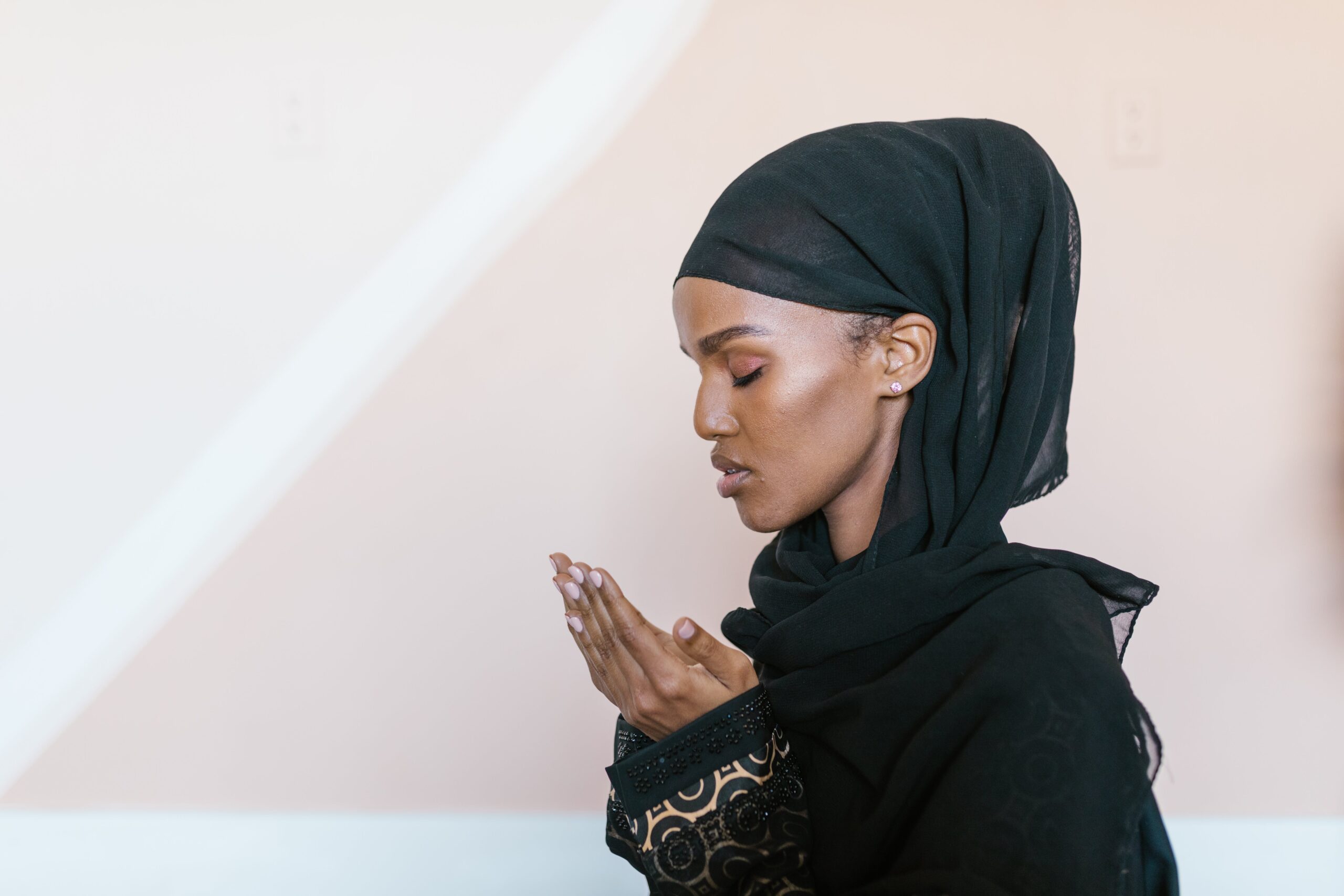During Ramadan Muslims around the world embark on a month-long spiritual journey. For Black Muslim women, however, there are also some unique challenges they may face. Black women who are also Muslims find themselves at the intersection of two marginalized identities. This can amplify experiences of discrimination. It can also bring added complexities during the holy month, particularly in the midst of intense political climates, such as the ongoing conflict in Gaza.
It’s important for Black Muslim women to prioritize their journeys as a means to a bountiful and pleasant month of Ramadan.
Ramadan Prep
The Workday
Start by having an open and honest conversation with your employer or supervisor about your fasting schedule and any accommodations you may need. This could include flexible working hours, adjustments to break times, or designated spaces for prayer.
Organize your workload effectively by prioritizing essential tasks during times when your energy levels are typically higher. Consider tackling challenging or mentally demanding projects early in the day, while reserving simpler tasks for later when you may feel more fatigued.
Remember to be mindful of your body’s needs and listen to cues for rest. Take short breaks throughout the day to recharge, stretch, or perform light physical activity to maintain focus and productivity.
Hair Care Under a Hijab
Wearing a hijab is a cherished aspect of many Muslim women’s identities, but it can also present unique challenges for hair care.
Make sure to keep your hair clean and moisturized. Regularly wash and condition your hair to keep it clean and hydrated. Opt for gentle, sulfate-free shampoos and moisturizing conditioners to prevent dryness and breakage.
Apply a lightweight, nourishing hair oil or leave-in conditioner to your hair and scalp regularly to keep them moisturized and supple. Focus on the ends of your hair, which are more prone to dryness and split ends.
Consider incorporating protective hairstyles, such as braids, twists, or buns, to minimize manipulation and reduce friction against your hair from the hijab. These styles can help preserve moisture and promote hair health.
Make sure to protect your hair while it’s under a hijab. Wear a satin or silk undercap beneath your hijab to provide a smooth, friction-free surface for your hair. This helps prevent tangles, breakage, and friction-related damage.
It’s equally important to give your hair time to breathe. Whenever possible, take breaks from wearing your hijab to allow your hair to breathe and air out. This can help prevent scalp irritation and promote healthy circulation to the hair follicles.
Sustaining Energy Levels
Maintaining energy levels during Ramadan is essential for staying productive and focused throughout the day. Make sure to start your day with a balanced suhoor meal that includes complex carbohydrates, protein, healthy fats, and fiber. Opt for slow-releasing energy sources such as whole grains, fruits, vegetables, lean proteins, and dairy products to provide sustained energy throughout the fasting period.
Hydration is key. Even though you may be fasting from food and drink during daylight hours, it’s essential to stay hydrated before and after fasting hours. Drink plenty of water during non-fasting hours, particularly at suhoor (pre-dawn meal) and iftar (breaking the fast), to prevent dehydration and maintain optimal cognitive function. Incorporate hydrating foods such as watermelon, cucumbers, and soups into your iftar and suhoor meals to boost fluid intake.
You should also try to limit your consumption of caffeinated beverages and sugary foods, as they can lead to energy crashes and dehydration. Instead, opt for herbal teas, water, and nutrient-dense snacks to fuel your body without the risk of energy fluctuations.
When it comes to keeping your body moving, engage in light physical activity such as stretching, walking, or gentle yoga during non-fasting hours. This can help promote circulation, reduce fatigue, and boost energy levels. Avoid strenuous exercise during fasting hours to prevent excessive strain on your body.
Listen to your body’s signals and prioritize rest when needed. Take short power naps during non-working hours if possible, and aim for quality sleep during the night to support overall energy levels and well-being.
Interacting with Society
During the month of Ramadan, many non-muslim people are curious to know more about what you’re doing and why you’re doing it. Community is very important in Islam as is education. Take the time out to educate the people around you when called for and use it as an opportunity to share some insight on a religion that has many misconceptions.
This could also be a time where your non-muslim friends may want to tread carefully around you but don’t know where to start. Firstly, make sure to set boundaries around conversations and activities you’d rather not be a part of. Additionally, make sure to normalize your customs as best as possible around them so it doesn’t feel like they’re walking on eggshells.
It’s important to have a lot of compassion during this time as there are so many people around the world who have no idea what exactly it is that you’re doing. There may not even be many Black Muslims in your immediate community, so you have the opportunity to change the narrative around the intersectionality of Islam and Black culture within your circle.
Ramadan is also a time of giving and generosity. Get involved in community service projects or charitable initiatives that uplift and support marginalized communities. Whether it’s volunteering at a local food bank or organizing donation drives, find meaningful ways to contribute to positive change.
As Black Muslim women, your experiences and identities are multifaceted, and Ramadan provides a space for reflection, growth, and connection. By prioritizing yourself you can navigate this sacred month with grace and resilience.
